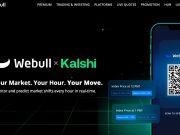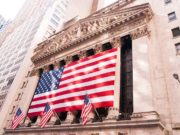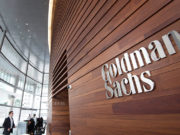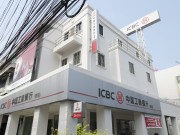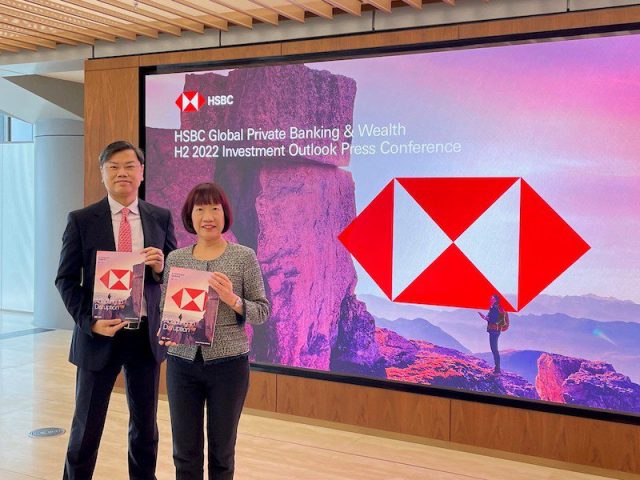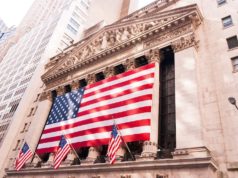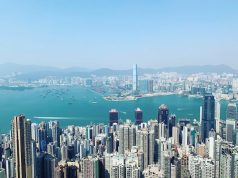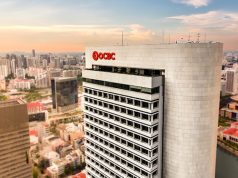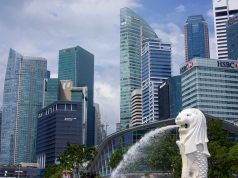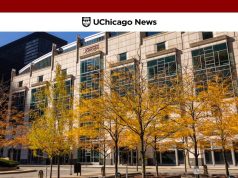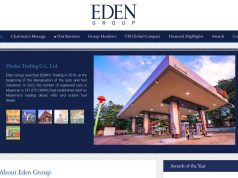HSBC Global Private Banking 2022 2H Investment Outlook: Adapting to Disruption, Slower GDP Growth to 3.4% in 2022
10th June 2022 | Hong Kong
HSBC Global Private Banking has released the 2022 2H Investment Outlook: Adapting to Disruption, with global GDP growth decelerating to 3.4% in 2022 and 2.9% in 2023 (2021: 5.8%). HSBC Global Private Banking: “Expects global economic cycle will continue but slow down, inflation will ease slowly, and US rate hike expectations will be moderating in H2 2022, despite lingering energy shock and supply chain disruptions. It maintains a neutral exposure to risk assets with a focus on quality earnings, income strategies and risk diversification. For the next six months, it holds a neutral position on global equities with overweight allocation to US, Hong Kong and ASEAN equities. On fixed income, it remains overweight on global investment grade and high yield credit, EM and Asian hard currency bonds. To hedge stagflation and interest rate risks, it has overweight allocation to hedge funds, energy, materials and financials stocks while staying bullish on the US dollar and commodity currencies. To search for diverse income opportunities, it favours high dividend stocks, private real estate and private credit. Managing geopolitical and macro uncertainty, it maintains a balance in equity style exposure to value versus growth stocks, and cyclical versus defensive sectors. Its investment strategy has strong preferences for quality companies with the ability to adapt to disruptive changes and structural shocks, as well as companies with strong ESG performance.” View below for key 2022 2H Investment Outlook:
“ Adapting to Disruption, Slower GDP Growth to 3.4% in 2022 “
Investing in a Disruptive World – Focus on Quality, Income and Diversification

HSBC Global Private Banking forecasts global GDP growth will decelerate to 3.4% in 2022 and 2.9% in 2023, down from 5.8% in 2021. It expects global energy shock and supply chain challenges to push up global inflation to 7.5% in 2022 before moderating to 5.1% in 2023.
Fan Cheuk Wan, Chief Investment Officer for Asia, Global Private Banking and Wealth at HSBC: “The world has faced several structural shocks and investors need to reposition their portfolios to adapt to these challenges. The COVID-19 crisis, Russia-Ukraine war and sustainability revolution are disrupting supply chains, labour markets, energy sources and infrastructure. These structural changes will require significant investments that will ultimately help boost growth, but this will also push up costs and cause inflation to become stickier than witnessed in the past decade. We expect the investment outlook for risk assets will gradually improve in H2 2022 with support of a soft-landing for the global economy and easing stagflation fears.
We forecast the US federal funds target range will increase by another 200 basis points from the current level to reach 2.75-3.00% by March 2023. We expect potential downside for the bond markets will get more limited as they have already priced in more rate hikes than we expect. April US CPI data indicated that inflation may be slowly peaking from its 41-year high in March. We expect US core personal consumption expenditure inflation to moderate from 4.9% in April to 4.2% in Q4 2022 and further down to 2.8% in Q4 2023, paving the way for a pause in the US rate hiking cycle in Q1 2023.
Our 3×3 portfolio strategy focuses on quality earnings, income strategies and risk diversification to dampen volatility while remain invested and positioned to capture the upside we foresee in the second half of the year. Quality helps pick the companies with the most resilient fundamentals; income takes advantage of the increased yields; and diversification helps uncover uncorrelated opportunities in alternative assets. Quality companies with strong ESG performance are more likely to be adaptable to disruptive changes and outperform in the long term. As we expect limited scope for hawkish surprises from the US policy tightening, we see attractive value in short dated bonds and remain overweight on global investment grade and high yield credit, EM and Asian hard currency bonds. We stay bullish on the US dollar and commodity currencies in the US rate hiking cycle.
We continue to hedge interest rate risk via our overweight position on hedge funds and financials stocks, and we also hedge inflation risk by staying overweight on global energy and materials stocks while investing in private real estate. Searching for resilient income, we favour high dividend stocks which can balance the equity exposure between value and growth styles. High dividend stocks are typically value oriented companies in the financials, energy, materials and property sectors. Their value style and lower volatility make them more resilient to interest rate volatility.”
Remaking Asia’s Future – Resilient Growth Outlook
HSBC Global Private Banking expects the Asian markets will remain resilient to withstand stagflation risks and global disruptive changes. It forecasts Asia ex-Japan GDP growth to sustain at 4.9% in 2022 and rebound to 5.3% with support of China’s growth recovery in H2 2022. It expects inflation in Asia ex-Japan to stay benign at 3.0% in 2022 and 2.7% in 2023.
Fan Cheuk Wan: “We expect improved investment outlook for Asian equities and credit in H2 2022 as moderating US inflation and Fed rate hike expectations, China’s policy stimulus, supportive Asian central banks and accelerating economic reopenings in ASEAN should support re-rating of the Asian equity markets. One of our top investment trends – “Remaking Asia’s Future” focuses on structural opportunities from the region’s adaptations to the economic, geopolitical and pandemic challenges. Within Asian equities, we remain bullish on the ASEAN markets due to their positive reopening progress and strong recovery outlook. We are overweight on Singapore, Thailand, and Indonesia equities. In North Asia, we are overweight Hong Kong stocks due to the market’s compelling valuations and improved reopening outlook. We stay neutral on China equities as we look for better clarity on economic normalisation, geopolitical challenges and earnings uncertainty.”
China’s Policy Stimulus Supports H2 2022 Growth Recovery
Patrick Ho, Chief Investment Officer for North Asia, Global Private Banking and Wealth at HSBC:
“The recent national teleconference convened by China’s State Council called for urgent policy actions of the government officials to stabilise economic growth. The State Council introduced a series of 33 measures focusing on six areas to help support economic growth. We think this could lead to more aggressive efforts by the local authorities to roll out more decisive growth supportive measures in the coming months. While the latest key economic indicators in May suggested China’s economic downturn could have seen the worst in April, the pace of recovery remains highly uncertain due to the volatile development of the pandemic evolvement, continued slump in the property market, supply chain disruptions and extensive local containment restrictions that remain in place.
To counter the severe growth headwinds, we expect the People’s Bank of China to deliver further monetary stimulus, including 75 basis points of reserve requirement ratio cuts, more targeted credit support through window guidance and a boost for relending quotas for investments in technological innovation and net zero transition. Managing lingering earnings downgrade risk, we maintain our selective positioning and preference for quality companies in China which will benefit from policy stimulus, infrastructure investment, technology upgrading and green transformation.
We see more attractive risk-reward in Hong Kong stocks and take an overweight position in the Hong Kong market to reflect its improved investment outlook. Consensus estimates expect MSCI Hong Kong to deliver a 9.6% EPS growth in 2022, much stronger than flat earnings of MSCI China and Hang Send Index due to the market’s higher exposure to the defensive sectors, including insurance, banks, stock exchange, property, REITs and utilities sectors. Our Hang Seng Index forecast at end-2022 is 25,410.”
Stay Bullish on ASEAN Equities in H2 2022
ASEAN region has recorded strong recovery in economic activities this year with support of accelerating economic reopening under the “Living with COVID” strategy. Thanks to accelerated efforts to remove quarantine and test requirements, ASEAN is witnessing a sharp rise in incoming travellers.
James Cheo, Chief Investment Officer for Southeast Asia, Global Private Banking and Wealth at HSBC:

“Accelerating foreign direct investment is set to strengthen ASEAN as a key part of the global supply chain. ASEAN currently accounts for 13% of global foreign direct investment flow; The game changer for Southeast Asia is the implementation of the Regional Comprehensive Economic Partnership – the world’s largest free-trade agreement – which will bring about deeper trade and investment integration for the region.
We are overweight equities in Singapore, Thailand and Indonesia. First-quarter earnings results have reaffirmed strong underlying recovery trends in Singapore and Indonesia, with positive earnings surprises in the financials and consumer discretionary sectors. We also favour the high dividend yields of the Singapore equity market, especially Singaporean banks and REITs. Singapore recorded around 250,000 visitor arrivals in Q1 2022, up over 250% y-o-y, while tourists in the first four months of 2022 have exceeded the full-year total in 2021. In Thailand, the Tourism Authority forecasts around 1 million tourists per month from June until the end of the year, painting a much more optimistic outlook than its previous estimate.”
Q3 2022 Global High Conviction Themes
(1) Asian Champions at Great Value
HSBC Global Private Banking highlights that compelling valuation appeal emerges in the quality Asian industry leaders after the market correction year-to-date, which presents great entry opportunities for investors who seek to build strategic exposure to the structural growth winners in the region.
Patrick Ho, Chief Investment Officer for North Asia, Global Private Banking and Wealth at HSBC:
“Asia has become the home of many industry leaders with global leadership positions. Among the Fortune Global 500 in 2021, 231 or 46% of them have their headquarters in Asia. Companies from mainland China and Hong Kong accounted for 135 or 27% of the Fortune Global 500 list last year, making China number one on the list for the second consecutive year. After the market correction over the past 12 months, many Asian champions with strong brand franchise and resilient earnings power are now trading at significant valuation discounts to their global peers.
Under our high conviction theme on Asian Champions at Great Value, we identify undervalued Asian industry leaders with outstanding competitive position, robust business model and strong earnings outlook. In our view, Asian champions with superior fundamental quality, a strong balance sheet and robust business models are best positioned to win market share in a challenging environment and recover stronger when economic conditions improve.”
(2) Asia’s Consumer Revival
James Cheo, Chief Investment Officer for Southeast Asia, Global Private Banking and Wealth at HSBC:

“Ten major Asian economies have hit the 80%-plus double-shot full vaccination rate. In Singapore and South Korea, over 70% of their populations have received their third booster shots. Singapore has fully reopened its borders to all vaccinated visitors without quarantine requirement. Effective from 1 May, Thailand also reopened its borders to fully vaccinated travellers from all over the world. We have turned more positive on the consumption sector in Hong Kong after the government accelerated the reopening process and relaxed social distancing restrictions in May.
In China, the government has introduced various policy stimuli to support the job market and companies which have been hit by COVID-19 lockdowns. In order to revive depressed consumer sentiment, the Chinese government is expected to introduce more direct subsidies for households, such as issuance of consumption vouchers. In the medium term, China’s pursuit of common prosperity should lead to further urbanisation, rising income levels and expansion of the middle class consumers. Our theme on Asia’s Consumer Revival look for opportunities in the domestic leaders in the travel, hospitality, consumption, healthcare and e-commerce sectors. Consumer service industries in Asia should see improvement in profitability this year, especially in ASEAN.”
(3) Asia’s Green Transformation
Patrick Ho, Chief Investment Officer for North Asia, Global Private Banking and Wealth at HSBC:
“Being the world’s largest energy consumer and number one carbon emitting region that accounts for 52% of global emissions, Asia is well positioned to lead the global energy transition. The International Energy Agency forecasts Asia alone will account for 64% of new renewable capacity additions globally between 2019 and 2040 and it estimates China will need to invest more than RMB200trn till 2060 in green transformation projects to achieve carbon neutrality. Asian Development Bank estimates the ASEAN countries will need to invest USD210 billion a year to build climate resilient infrastructure till 2030.
Our high conviction Theme on Asia’s Green Transformation captures opportunities in renewable energy, including equipment makers of solar, wind and green hydrogen, energy storage providers, smart grid manufacturers and leaders in the new energy vehicles (NEV) supply chains. Being the world’s largest NEV market, China’s NEV supply chains command superior competitive advantages and earnings power against the global peers due to their vast economies of scale, efficient capital expenditure and high labour productivity. China’s electric vehicles sales currently account for over 50% of global sales. After recording a hefty 155% growth in 2021, China’s national NEV sales are expected to surge 52% in 2022 and 29% in 2023, lifting NEV penetration rate to 40% in 2025 and 75% in 2030.”
(4) Asian Quality Credit
Patrick Ho, Chief Investment Officer for North Asia, Global Private Banking and Wealth at HSBC:
“Amid volatility in the bond market, our theme on Asian Quality Credit looks for attractive carry opportunities in Asian investment grade bonds and RMB bonds given their quality appeal and enticing yield pick-up versus developed markets and other EM investment grade credit. We see the best opportunities in Indonesian hard currency bonds, Chinese SOEs, Chinese financials, including the better quality local government financing vehicles. To manage rate and FX volatility risks, we stay focused on short dated Asian hard currency corporate bonds which are expected to see lower price volatility relative to longer-dated bonds.
The People’s Bank of China cut the 5-year Loan Prime Rate by 15 basis points to 4.45% and the mortgage rate was lowered by up to 35 basis points in May. We expect China’s monetary easing will help mitigate hard landing risk in the real estate market and support stabilisation of the Chinese credit market. Within the Asian credit market, we are overweight in Indonesian hard currency sovereign and corporate bonds to reflect their strong credit fundamentals in the face of easing pandemic headwinds and accelerating reopening. Indonesian credit also benefits from the strong rally of coal and nickel prices.”
Sign Up / Register
Caproasia Users
- Manage $20 million to $3 billion of assets
- Invest $3 million to $300 million
- Advise institutions, billionaires, UHNWs & HNWs
Caproasia Platforms | 11,000 Investors & Advisors
- Caproasia.com
- Caproasia Access
- Caproasia Events
- The Financial Centre | Find Services
- Membership
- Family Office Circle
- Professional Investor Circle
- Investor Relations Network
Monthly Roundtable & Networking
Family Office Programs
The 2025 Investment Day
- March - Hong Kong
- March - Singapore
- July - Hong Kong
- July - Singapore
- Sept- Hong Kong
- Sept - Singapore
- Oct- Hong Kong
- Nov - Singapore
- Visit: The Investment Day | Register: Click here
Caproasia Summits
- The Institutional Investor Summit
- The Investment / Alternatives Summit
- The Private Wealth Summit
- The Family Office Summit
- The CEO & Entrepreneur Summit
- The Capital Markets Summit
- The ESG / Sustainable Investment Summit


